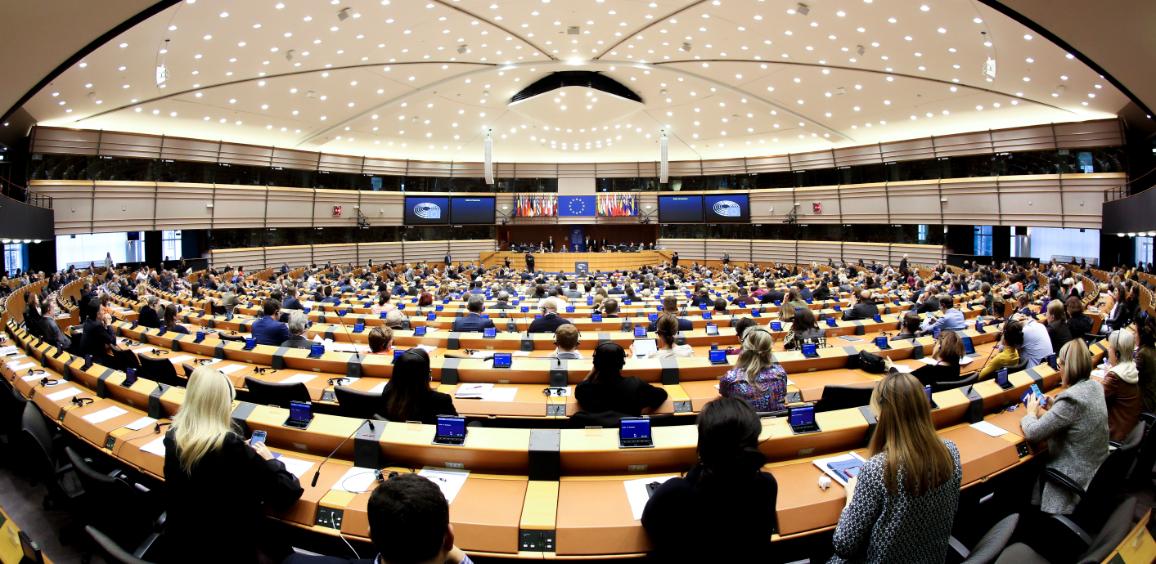
On March 10th, the EU enacted sanctions on Poland and Hungary. The European Parliament (EP) adopted a resolution to withhold funds from any member states that failed to fulfill the rule-of-law principles of the EU, specifically naming these two countries. The resolution was adopted with 478 votes in favor, 155 against, and 29 abstentions.
The sanction may be the last word in a controversy that began in 2021. Last October, Poland’s constitutional court had ruled that parts of EU treaties were incompatible with Polish law, which led to many Western countries accusing Poland of “undermining the foundations of the EU.” Likewise, Hungary had been criticized by the EU for adopting its child protection law last year, which the EU considered discriminative against the LGBTQ community. A provoked EU responded by threatening to withhold funds, which led to Poland and Hungary accusing the EU of making member funds conditional. Now the European Court of Justice (ECJ) has formally settled the matter, to the eastern European countries’ disadvantage.
The ruling may have legally resolved the dispute, but it has also fueled the antagonism between these member states and the EU. The EU defends the sanctions as a means toward protecting the rule of law, judicial independence, and transparency; its parliament noted that it was “high time” for the European Commission to “react to the ongoing violations of the rule of law in some EU member states, which pose a danger to the European Union’s financial interests.” Warsaw and Budapest, however, read the ruling as a political tool based on subjective criteria, used to punish governments that the EU disapproves of.
The ruling has also exposed the EU as fractured: “the Russians bombed a maternity ward in Mariupol. Meanwhile, Germany is blocking further sanctions against Russia, and the European Parliament votes in favor of sanctions for Poland,” tweeted Sylwester Tułajew, Member of Parliament for the Polish PiS.
Polish and Hungarian ruling parties have responded with indignation. They recognized months ago that what the EU calls a “conditionality mechanism” laid the foundation for abuse and exploitation. Poland’s Law and Justice (PiS) party criticised the moment of this decision as “particularly inappropriate,” since only as a unified block will the EU have any hope of resolving the crisis in Ukraine, or assisting in the resultant refugee crisis.
Member of Parliament Bogdan Rzońca, PiS, suggested an amendment to withhold the mechanism, due to the war in Ukraine. But it was rejected, leading him to conclude that “the left-liberal European Parliament has shown Putin that there is no solidarity within the EU and that he can harass and scare the countries that border Ukraine,” as reported by Notes from Poland.
Countering these PiS critics, Robert Biedroń of the Polish Left defended the sanctions as well intentioned: “respect for the law, including the right to an independent court that is not influenced by politicians, is a fundamental freedom…[and] the basis of the values for which Ukrainian soldiers are dying today.”
Meanwhile in Hungary, members of Fidesz released a statement calling the decision “unacceptable,” accusing the Left of political blackmail, Hungary Today reported. Fidesz complained that “rather than supporting Hungary’s and Poland’s fight to provide for Ukrainian refugees, leftist politicians threaten them with blocking their EU funding for political reasons.”
But there too, the Left offered resistance. The Socialist (MSZP) MEP István Ujhelyi called Fidesz’s reaction a “confession” of disloyalty to Hungarian interests, “further strengthening their clear opposition to European values and risking Hungary’s EU funding.” To Ujhelyi, Fidesz uses “mafia politics,” leaving Hungary no choice but “to change governments [at the general election] in April if it wants to access the billions it is entitled to in EU funding.”
According to the European Parliament, the conditions will be applied for funding within the 2021-2027 financial framework. It will impact the Recovery and Resilience Facility, an instrument set up to offset the fallout of the coronavirus epidemic, but more immediately, exacerbate tensions at the Hungarian and Polish borders. Poland, who has taken in more than 1.5 million Ukrainian refugees, is already struggling with the economic costs of the refugee crisis.
